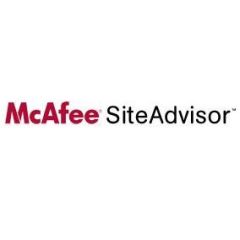 Scammers are manipulating search engines using new SEO talents to get victims to download malware.
Scammers are manipulating search engines using new SEO talents to get victims to download malware. A report from McAfee that lists what it considers "The Web's Most Dangerous Search Terms" includes a lot of terms that may surprise you.
The news comes shortly after a report from Panda Security revealed that malware writers have become adept at search engine optimization and are even building their own search engines. The McAfee report covers only legitimate search engines.
Users searching for downloadable content -- especially screen savers, music lyrics, and free digital music -- are at risk of downloading malware instead, the study concluded. The survey covered over 2,600 popular keywords from a wide variety of sources for the U.S. and from Google Zeitgeist for international search.
For each keyword, the company examined the safety of search results on the first five pages of the following five search engines: Google, Yahoo, Microsoft Live, Ask, and AOL for a total of 25 pages of results.
The McAfee study also touts two of its free services, SiteAdvisor (software that rates the riskiness of search engine links) and the Cybercrime Response Unit (which helps victims contact financial institutions and law enforcement).
The company counted the number of items marked dangerous (red or yellow) by SiteAdvisor and divided that by the total number of results to produce two numbers: the most risky page in all the results, and the average risk across the 25 pages. Across all results, the average risk was 1.7 percent and the maximum risk averaged out to 10 percent.
SiteAdvisor tracks the following risks: downloads, browser exploits, e-mail registration forms and ease of unsubscribing, phishing (define), excessive popups, and links to other risky sites. Sites that fail one or more of these tests get a red rating, and sites that "merit caution before using" get a yellow rating. Green ratings go to sites with no risk or only "very minor" risks.
It would have been interesting to compare the relative safety of these five search engines, but that was not the purpose of the study, said Shane Keats, McAfee research analyst, in an e-mail to InternetNews.com.
"This is a study that focuses on keywords, not search engines. We wanted consumers to have a simple take-away from this study: The Web is a great resource but consumers need to understand that it has risks, and those risks are magnified if you search in popular categories," he wrote.
He added that customers can avoid the risks as they would avoid risks while driving. "As with driving on highways, risks can be mitigated if you use safe rules of the road," he said.
Beware of downloadsThe riskiest terms were those that involved downloading content. Around the world, "lyrics" was one of the most dangerous search terms, appearing in the top 10 in the U.S., Canada, The Netherlands, and New Zealand.
In the U.S., the most dangerous search terms were "free music downloads" (20.7 percent average risk), "game cheats" (16.7 percent), "word unscambler" (16.1 percent), followed by "lyrics" (14.8 percent).
For further keyword analysis, McAfee contracted with Hitwise, an Internet data company, to collate risk levels from individual keywords into categories. The riskiest category by far was "screensavers," with an average risk of 34.4 percent, followed by "free games" (6.8 percent), "work from home" (3.1 percent), "Rihanna" (2.4 percent), "Wekbinz" (1.9 percent), "powerball" (1.5 percent) and "iPhone" and the "Jonas brothers," both at 1.2 percent.
Globally, the keywords with the worst average risk profiles were "free" sites (7.3 percent) and lyrics sites (5.1 percent).
The report said that it made sense that malware writers were targeting keywords associated with downloading. "One key tool cybercriminals use to snare victims is to get them to download a computer file or program that comes with a malicious payload," the report said.
Malware writers exploit current events. "Hackers are most successful when they can attract a large number of victims. One way to target big crowds online is to track current events -- everything from celebrity meltdowns and natural disasters to holidays and popular music," the report said.
"The best protection is to install a computer security suite and keep it up to date and to use a safe search tool like McAfee SiteAdvisor software," the report concluded.
(InternetNews)